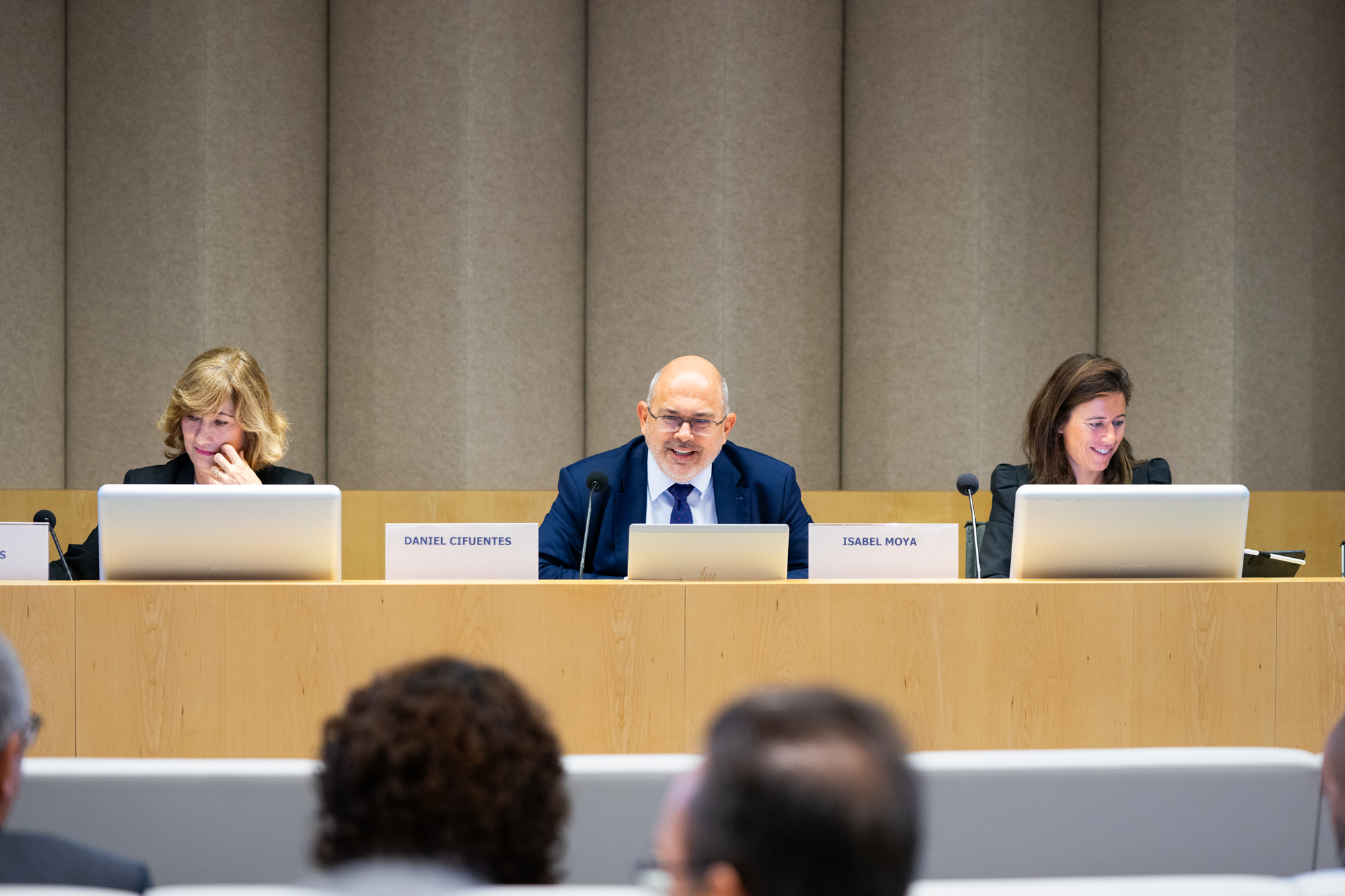Pérez-Llorca’s Employment, Compensation and Benefits practice area held a new ‘Pérez-Llorca Labour Law Update’ session with the participation of partners Daniel Cifuentes and Isabel Moya and Of Counsel Yolanda Valdeolivas.
Daniel Cifuentes began the seminar by outlining the latest trends in severance pay, focusing on the ruling of 29 July 2024 in which the European Committee of Social Rights denounced Spain for having a system of fixed severance pay. For Yolanda Valdeolivas, the additional compensation provided for in the European Social Charter and the International Labour Organization (ILO) Convention is not directly applicable at a national level. Therefore, it is the interpretation of the courts, under the principle of conventionality control, which is bringing this additional compensation to the social dialogue table. Valdeolivas does not consider this to be a current concern for the government, although it is undeniable that demands are being made for higher compensation than that established by law. In this framework of legal uncertainty, Cifuentes warned that “until the Supreme Court rules and establishes clear criteria on the calculation of this additional compensation, it is foreseeable that the courts will continue to issue disparate rulings based on diverging interpretations.”
Then, following the usual ‘Pérez-Llorca Labour Law Update’ session format, the top three most significant judgments from recent months were presented. This time, first place went to Judgment 903/2024 of the Supreme Court, dated 11 June 2024, on trade union credit, which stated that the request by a company of a generic justification for the use of trade union credit does not constitute an infringement of freedom of association, as long as it is not required in an exhaustive or rigorous manner. Accordingly, a generic description of the use of the time credit (assemblies, meetings, training, etc.) can be requested, but without the need to provide detail.
The third part of the event covered the termination of employment contracts following a declaration of permanent disability. Firstly, Yolanda Valdeolivas analysed the ruling of the Court of Justice of the European Union of 18 January 2024, which declared that the practice of not requiring companies to adopt reasonable accommodation measures for employees with disabilities to be null and void due its discriminatory nature, which prompted the Ministry of Labour to reform article 49 of the Workers’ Statute. Previously, the contract was automatically terminated in cases of permanent disability without the need to justify a business cause, and without distinguishing between the different degrees of disability. “The draft aims to eliminate the automatic nature of the termination, which cannot be assumed in the case of absolute permanent disability or severe disability, since in these situations, by their very nature, adaptation or relocation is not considered,” Valdeolivas said.
Isabel Moya added that the draft eliminates paragraph e) of article 49 of the Workers’ Statute and, at the same time, adds paragraph n), which establishes that, without prejudice to the provisions of article 48.2 of the Workers’ Statute, the company must take reasonable measures to avoid terminating the contractual relationship before doing so. “Pending better wording, it is configured as an autonomous cause for termination, when the adoption of the measures would place an undue burden on the company,” Moya stated. The Pérez-Llorca partner explained that, until the reform is approved, the automatic termination of the employment relationship may continue to be applied in situations of total permanent disability, but in accordance with the ruling of the Court of Justice of the European Union, i.e. once it has been proven and accredited that adaptation is impossible.
